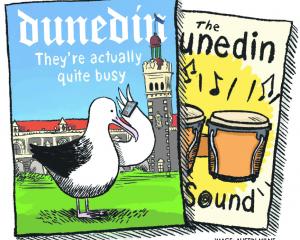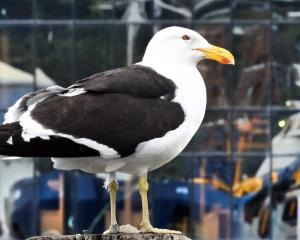Free bus travel may soon be available in Dunedin.
A free central-city bus loop being considered by the Dunedin City Council as part of its 2019-20 annual plan has received overwhelming support.
At the public hearings on the plan held this week, those making submissions from a range of groups lent their support to the proposal.
Associate Prof Sandra Mandic, a senior lecturer in exercise science at the University of Otago, congratulated the council for its focus on improving public transport.
The proposal to introduce a new central city bus loop, and use rates to subsidise bus fares, dovetailed with a newly released report on active transport - including encouraging public transport - which Prof Mandic co-authored.
The report, recently released in Wellington, highlighted how transport choices were harming human health by contributing to the failure of half of New Zealanders to achieve minimum physical activity guidelines, she told councillors.
The council's proposals were ''on the right path'' and came as the Government also focused on initiatives to encourage walking, cycling and public transport, to deliver health and environmental benefits, she said.
Christine Kelle also wanted initiatives to encourage public transport, and suggested a ''semester ticket'' for students, allowing unlimited travel for a one-off charge on top of course fees.
It was the kind of system used in her home country, Germany, and could be a ''win-win'' that delivered ''critical mass'' to Dunedin's public transport system, she said.
The city should also look at monthly, weekly or daily passes to encourage bus use, she said.
''The whole community should see public transport as something everybody needs.''
Earlier this week, Liz Angelo, a co-founder of the City Rise Up community group, supported the idea of a central city bus loop but said it should be extended to include hill suburbs.
A route that also ran up past the Speight's brewery, through the ''Catholic zone'' and Town Belt to Moana Pool, and then back down to the University of Otago campus, would deliver additional benefits, she said.
It would be a ''tremendous asset'' for residents and tourists, some of whom already hiked up Dunedin's hill streets to view heritage buildings and the vista from the top, she said.
The service should have at least two buses operating on the route, preferably electric vehicles, she said.
''We've got to make it cheap, too. If it's more expensive to take a bus, they won't [use it]. They will take a car.''
Bus Users Support Group Otepoti-Dunedin co-president Peter Dowden said the group was in total support of the bus loop proposal and that its route should also include parts of hill suburbs.
Other locations such as the Otago Museum, the Dunedin Public Art Gallery and Central Library should also be included and it might be necessary to have two loops, or run the bus route in a figure-8 or pretzel shape, Mr Dowden said.
CSS Disability Action co-ordinator Mary O'Brien said a free inner-city bus loop would allow people who were unable walk from the bus hub to the centre of town or to the hospital to access those areas independently.
-Additionally reported by Tim Miller












